This film was created to highlight the suffering caused by isolation and loneliness and is meant to be used as a tool to create solutions to these problems faced by care leavers.
Understanding Loneliness
Youth loneliness and isolation is a widespread, but still much misunderstood issue. Through research in recent years, we are beginning to get an insight into the scale of youth loneliness and isolation, and the impact being lonely or isolated can have on individuals.
Loneliness and isolation can be difficult and sensitive subjects; subjects that can feel overwhelming at times, but we can help young people begin to explore the issues, to start taking positive steps in their own lives, and even build the confidence and motivation to help others. This section contains a range of data, research and reports to help improve our understanding of youth loneliness and isolation.

This film was created to highlight the suffering caused by isolation and loneliness and is meant to be used as a tool to create solutions to these problems faced by care leavers.

The Samaritans have produced this paper which explores how loneliness and suicide are connected, and if or how reducing loneliness could reduce a young person’s risk of suicide. It sets out key findings from a literature review; an online survey with 250 young people who had felt lonely and suicidal at some point(s) in their lives; interviews with 15 young people on their experiences of loneliness and suicidal thoughts; and a roundtable with policy experts.

The Loneliness Experiment was a study conducted by BBC Radio 4’s All in the Mind, in collaboration with Wellcome Collection and researchers at The University of Manchester, Brunel University London, and Exeter University. More than 55,000 people aged 16 years and over took part in the study – making it the largest-ever study into the issue of loneliness. The study asked respondents to give their opinions and record their experiences of loneliness and related topics, including friendship, relationships, and the use of technology – as well as recording lifestyle and background information.
There’s often a stereotype that loneliness mainly strikes older, isolated people. And of course it can. But this piece of research found higher rates of self-reported loneliness among younger people. A key finding was that 40% of 16 to 24-year-olds who took part said they often or very often feel lonely, compared with 27% of over those aged over 75.

The Office for National Statistics has produced a range of data based on an analysis of children’s and young people’s views, experiences and suggestions to overcome loneliness, using in-depth interviews, the Community Life Survey 2016 to 2017 and Good Childhood Index Survey, 2018.
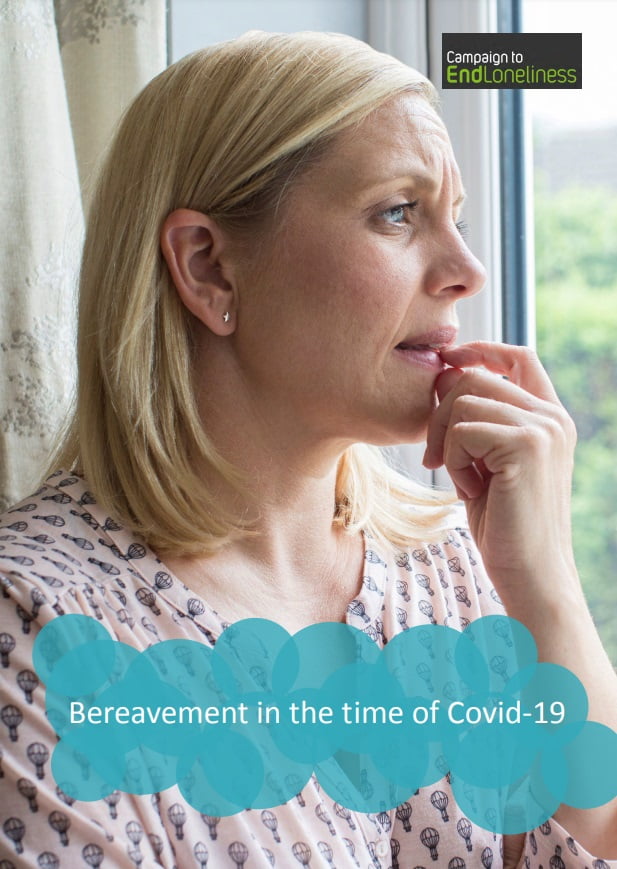
The recent Loneliness in the time of Covid-19 session brought together organisations working to address loneliness and social isolation to discuss how they have been supporting people who have been bereaved and to consider the challenges ahead.
Bereavement has been a common theme in conversations throughout our series of discussions – with many more organisations supporting people who were bereaved, seeing loss within their communities, and dealing with the interplay between grief and loneliness among many of their service users and members.
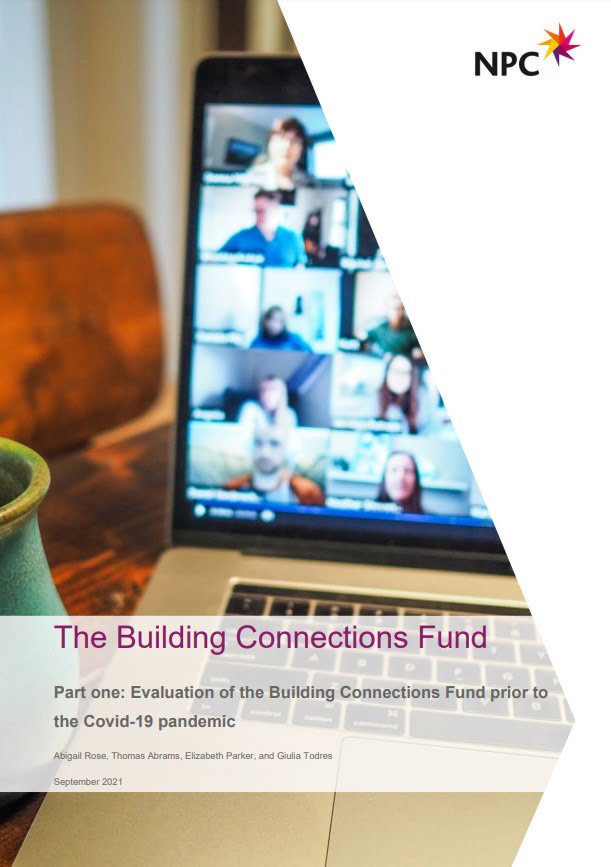
The £11.5m Building Connections Fund (BCF) was the first ever government fund dedicated to tackling loneliness in England. It was a partnership between 7 government departments, The National Lottery Community Fund and Co-op Foundation. Grants were awarded to 126 organisations working with people from different age groups and backgrounds, to undertake a wide range of activities.
New Philanthropy Capital (NPC) was contracted by DCMS to lead a consortium of evaluation and learning partners in conducting a mixed methods evaluation of the BCF. There are two separate reports for this evaluation: part one, the evaluation report which covers findings before the COVID-19 pandemic; and part two, focusing on the evaluation activity following the COVID-19 pandemic.
These reports present the findings of the evaluation of the Building Connections Fund.
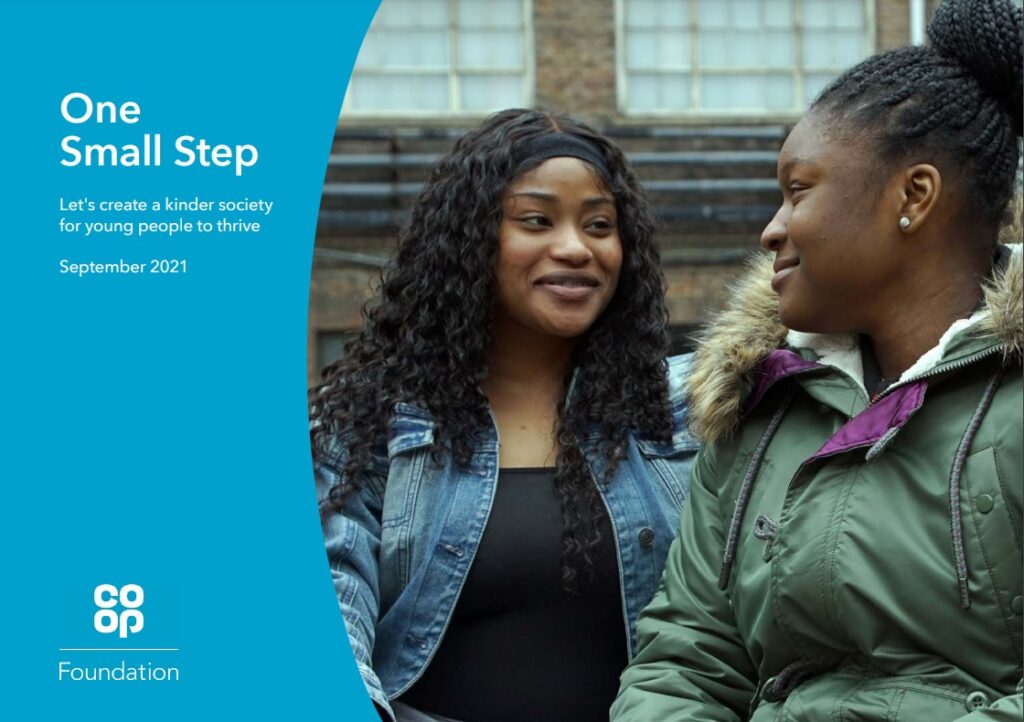
For the past five years, the Co-op Foundation has been doing its bit to tackle the issue among one demographic, by empowering young people to overcome loneliness in their age group.
Our work has ranged from funding theatre groups and community cookery classes to helping to build networks that support youth workers to co-operate and collaborate. It’s also encouraged us to launch a multi-year, national (and growing) campaign called Lonely Not Alone that focuses on tackling the stigma many young people feel about loneliness.
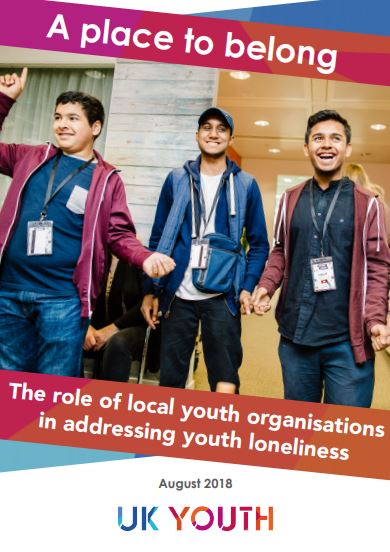
This report focuses on the role of local youth organisations in addressing youth loneliness from the perspective of youth workers. It considers four themes: youth workers awareness of youth loneliness, their capability to address youth loneliness, the barriers to addressing youth loneliness, and the kind of support required to more effectively address youth loneliness.

Over the past year, the COVID-19 pandemic has continued to highlight how crucial it is to feel connected with others. Many of us have been able to reconnect with our loved ones in person again. We have been able to be together in our communities, too. Local organisations across the country have continued to adapt and provide opportunities for people to connect safely.
However, we know that a large number of people felt lonely and isolated in this country long before the pandemic. That is why, three years ago, the government published a strategy to tackle loneliness and build a more connected society.

The Campaign to End Loneliness has published a new report, The Psychology of Loneliness’. it is the first of its kind to look at how we can use approaches from psychology to address loneliness. The campaign comes as a result of the Building Connections Fund a part of the government’s loneliness strategy.
The report brings together the research with views and experiences of older people, policy makers, and organisations who work with older people, to look at how loneliness affects individuals, how people think and feel, and how to provide better support for people who feel lonely or are at risk of feeling lonely.
The report includes a forward from Baroness Barran MBE, Minister for Civil Society, in which she states that she is pleased that the report has brought to the fore some aspects of addressing loneliness that are often not spoken about.
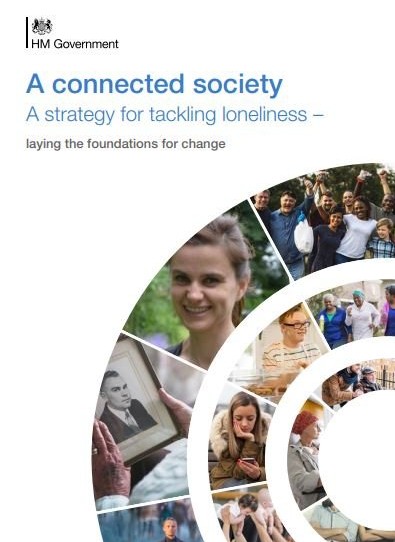
This strategy sets out the Government’s approach to tackling loneliness in England. It looks to take forward a cross-government approach to tackling loneliness, building on the pioneering work started by Jo Cox and carried on in her name by the Commission on Loneliness.
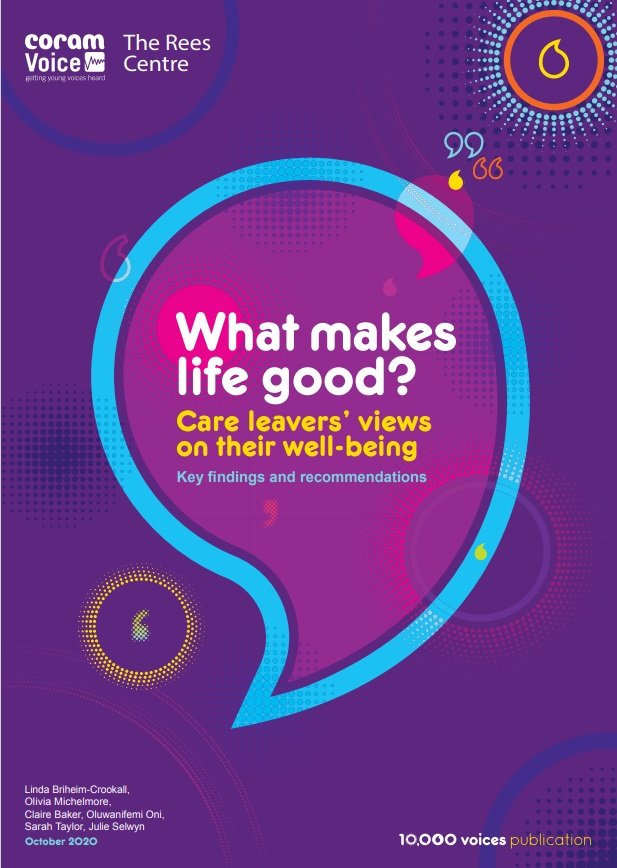
This report analyses 1,804 care leaver responses collected in 21 English local authorities between 2017 and 2019.

Last year, the Higher Education Policy Institute (HEPI) asked students about loneliness in their annual survey for the first time. Repeated again this year (published last month) they found “… Around one-in-four students feel lonely all or most of the time, while at the other end of the scale, a similar proportion feel lonely on rare occasions or not at all. Overall, although we do not yet have a lengthy time series of data, loneliness has increased, with a statistically significant 3 percentage point increase in the proportion who feel lonely all or most of the time.”
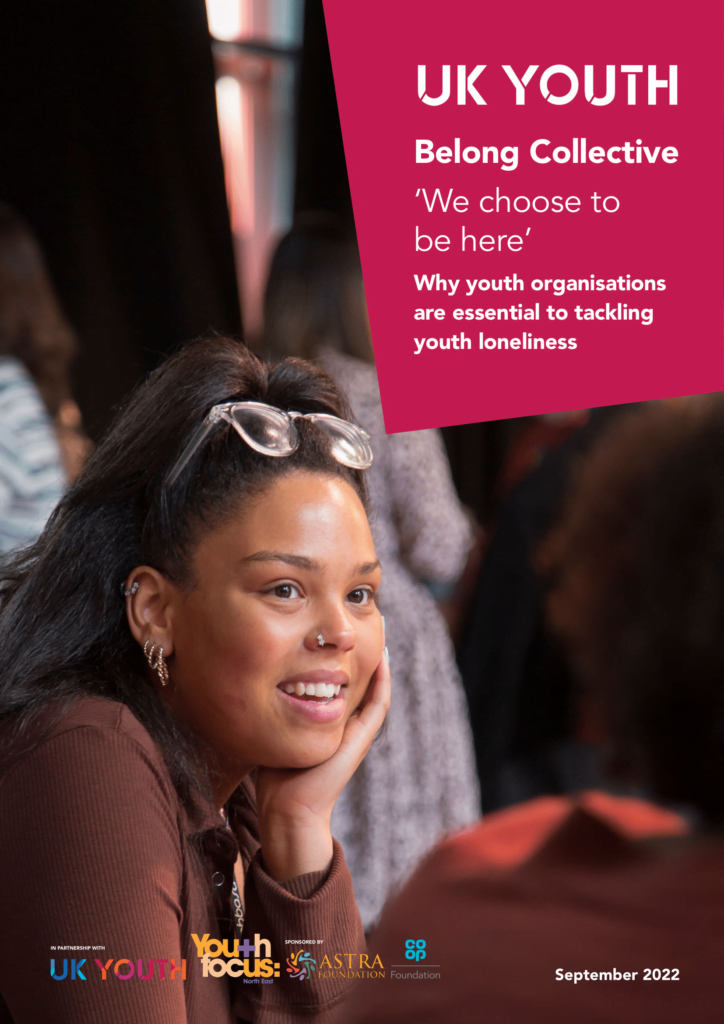
This report focuses on the essential role that youth organisations play in supporting young people to overcome loneliness and considers ways in which we can support young people in the future. It has been funded by the Co-operative foundation and the Astra Foundation who have generously supported UK Youth to relaunch the ‘Belong Collective’ which supports the youth sector in sharing good practices and leaning in supporting young people with loneliness.
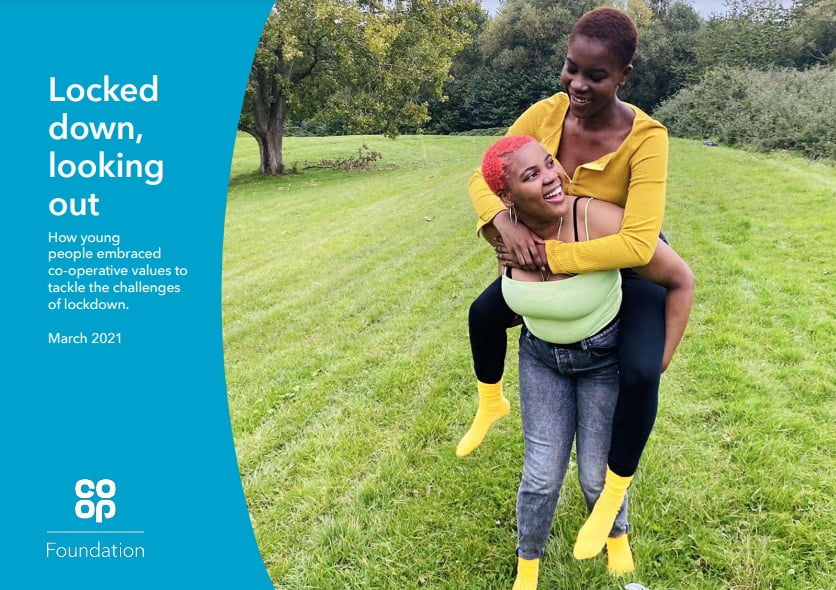
How young people embraced co-operative values to tackle the challenges of lockdown.
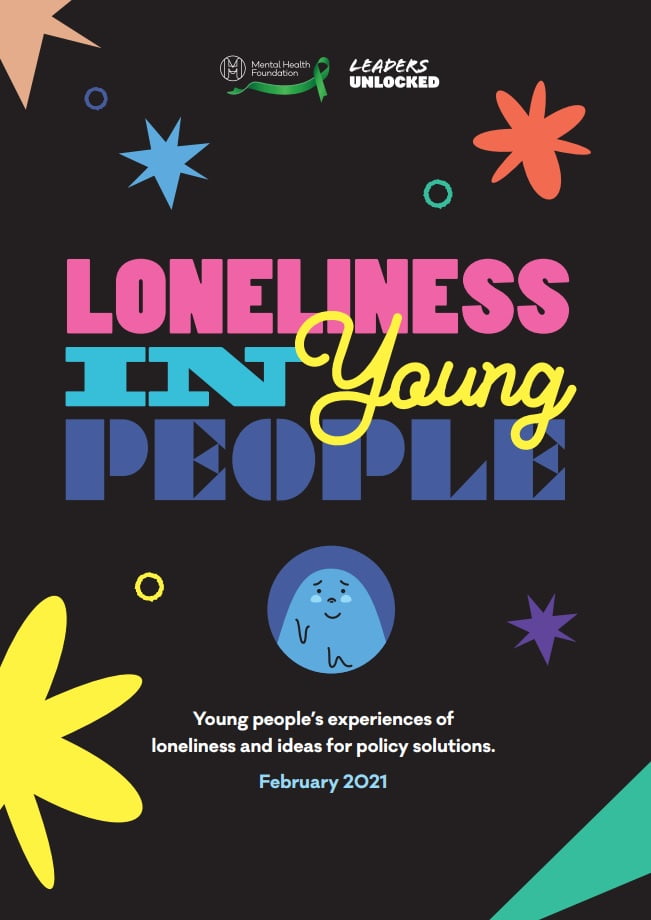
Throughout the Coronavirus pandemic, loneliness has been a key concern across all age groups, and evidence from our own Coronavirus: mental health in the pandemic series shows that young people in particular are at risk of loneliness.
In collaboration with our Mental Health Foundation Young Leaders policy group – a diverse group of 14–25-year-olds hosted by Leaders Unlocked – we have created the #UnlockLoneliness campaign, consisting of:

A companion piece of work to the Youthscape project (detailed above), Youth Focus North East received funding from the Co-op Foundation to develop a group of young people as young researchers to explore the correlation between undertaking social action and its ability to tackle youth loneliness. As part of their work, the Coop Young Researchers made a short film and co-produced a report with Youth Focus North East.
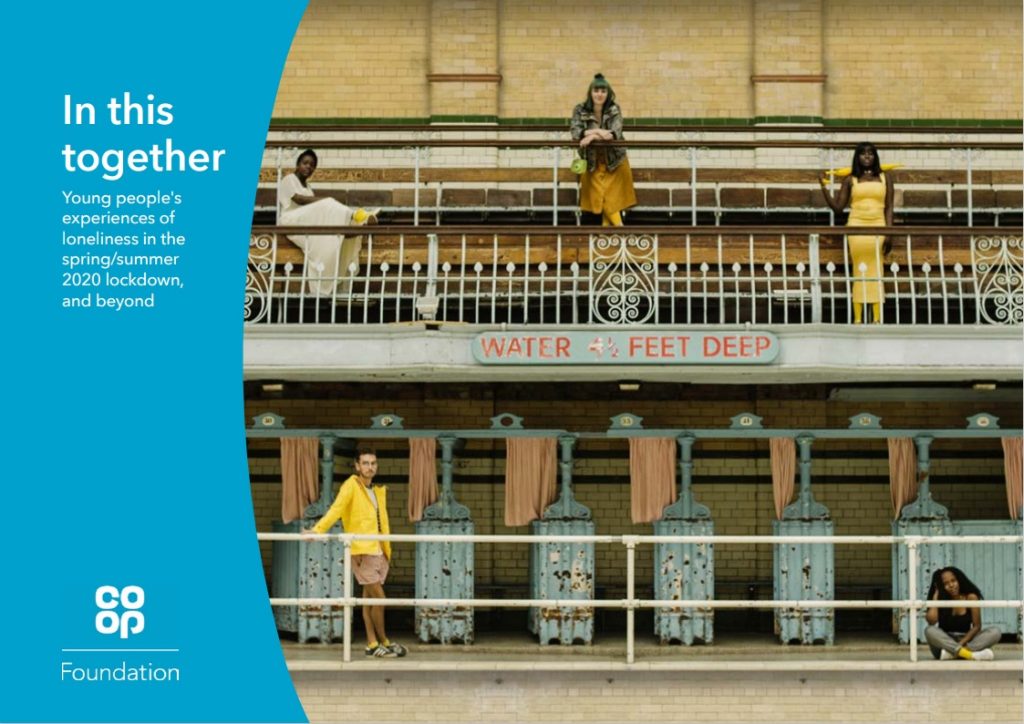
Young people’s experiences of loneliness in the spring/summer 2020 lockdown, and beyond.
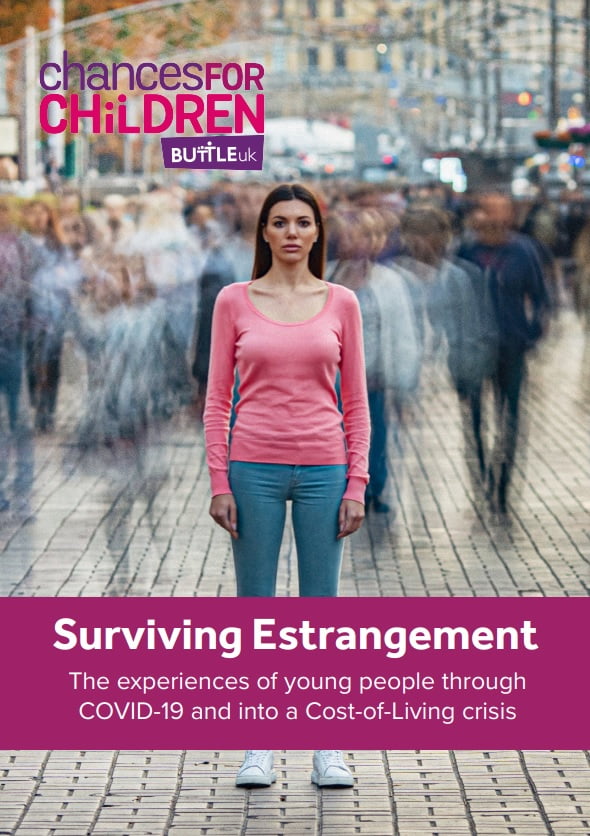
Buttle UK worked with young people who are estranged from their families to produce the Surviving Estrangement Learning Report – loneliness is a core message that comes out of the report, particularly in relation to mental health and wellbeing.
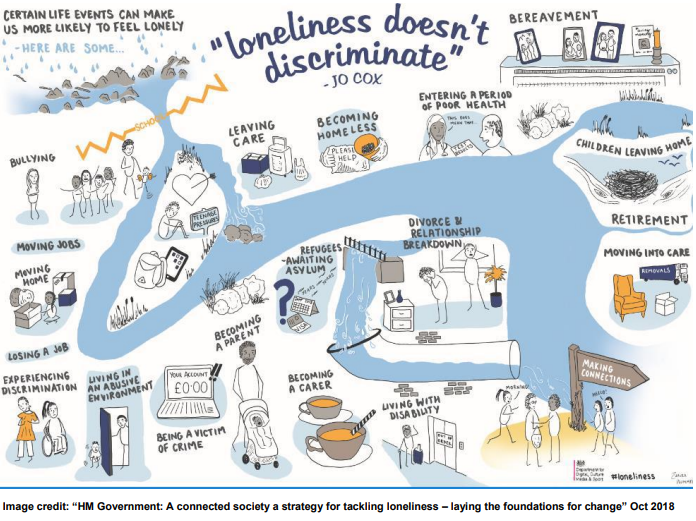
An analysis of children and young people’s views of, experiences of and suggestions to overcome loneliness, using an online survey, group work, and one-to-one activities.
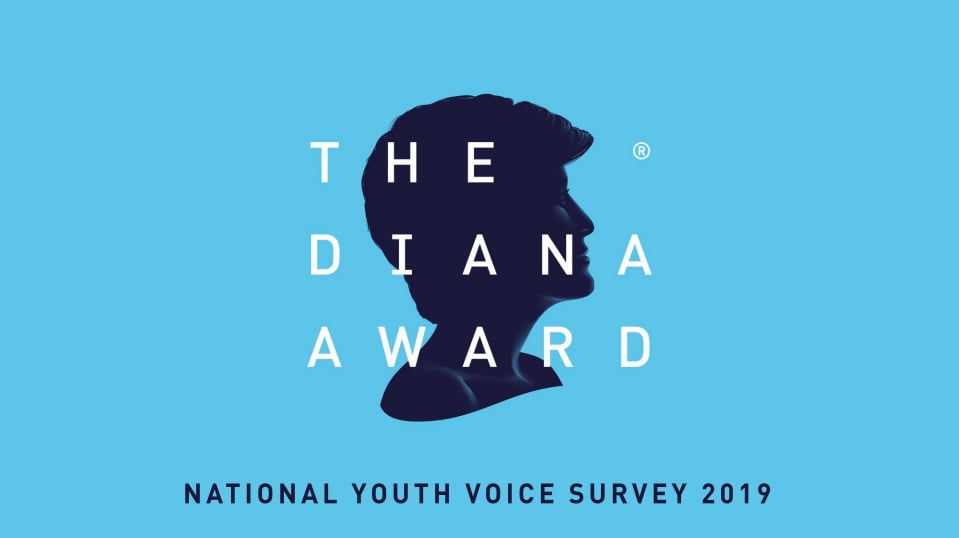
Findings and recommendations from a 2019 survey, capturing Young People’s voices, bringing them to the forefront to crucial conversations around strengthening communities.
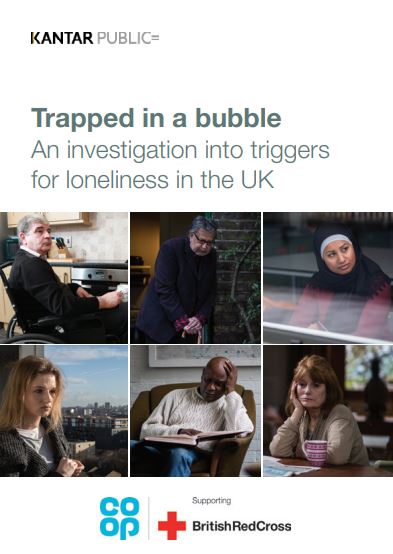
Kantar Public was commissioned by the British Red Cross to carry out research into some of the significant gaps in the evidence base around loneliness. Trapped in a bubble provides an insight into the causes and consequences of loneliness for six specific groups: young new mums (aged 18-24); individuals with mobility limitations; individuals with health issues; individuals who are recently divorced or separated (within the last two years); individuals living without children at home (‘empty nesters’) and retirees; and the recently bereaved (within the last six months to two years). It provides a useful starting point to begin thinking through different ways we can begin tackling loneliness and isolation.
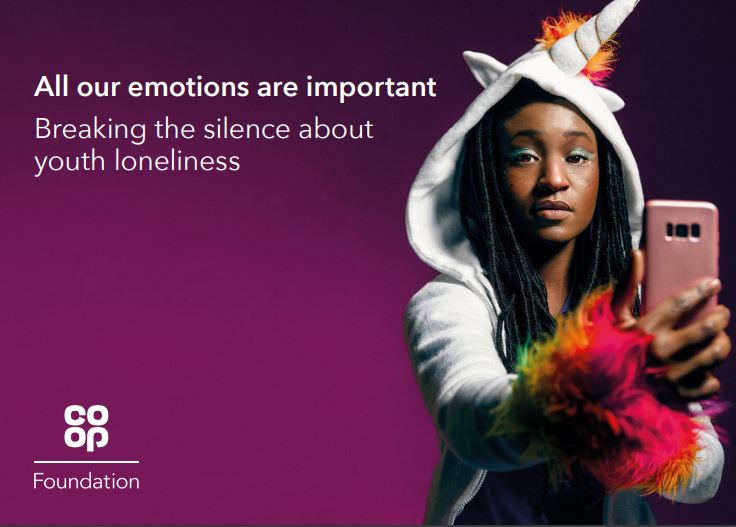
Although there is growing recognition that people experience loneliness at different stages of life, there have been limited efforts to understand in depth how it affects young people. The Co-op Foundation’s All our emotions are important – Breaking the silence about youth loneliness report presents the results of an ICM survey of 2,000 young people across the UK. It is one of the first reports to consider loneliness and isolation specifically in terms of young people.
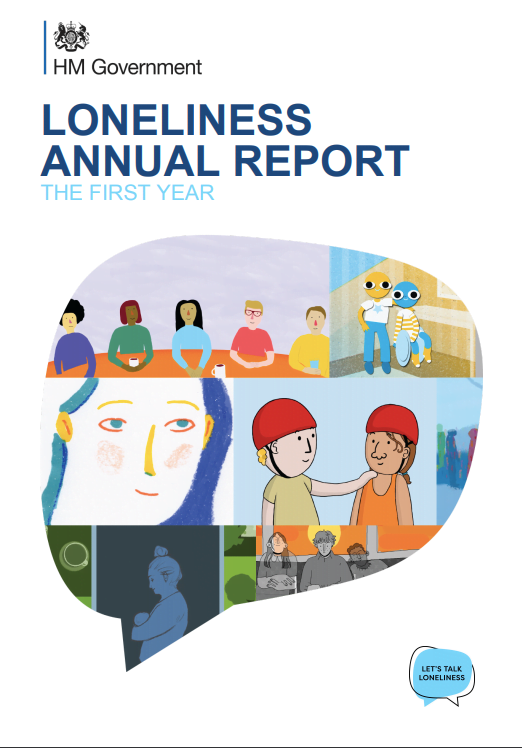
The first Annual Report on tackling loneliness provides a progress update since the publication of the cross-government Loneliness Strategy in October 2018
The Loneliness Connects Us project is youth co-research project that brings the voice of young people into the growing conversation about youth loneliness and answer these questions. They worked with a group of 14 youth co-researchers from 42nd Street, Manchester and Manchester MU programmes, exploring issues related to youth loneliness through arts-based and creative methods. In total we spoke to 133 young people in Manchester, Rhyll, Ballymena, Glasgow and Great Yarmouth.
